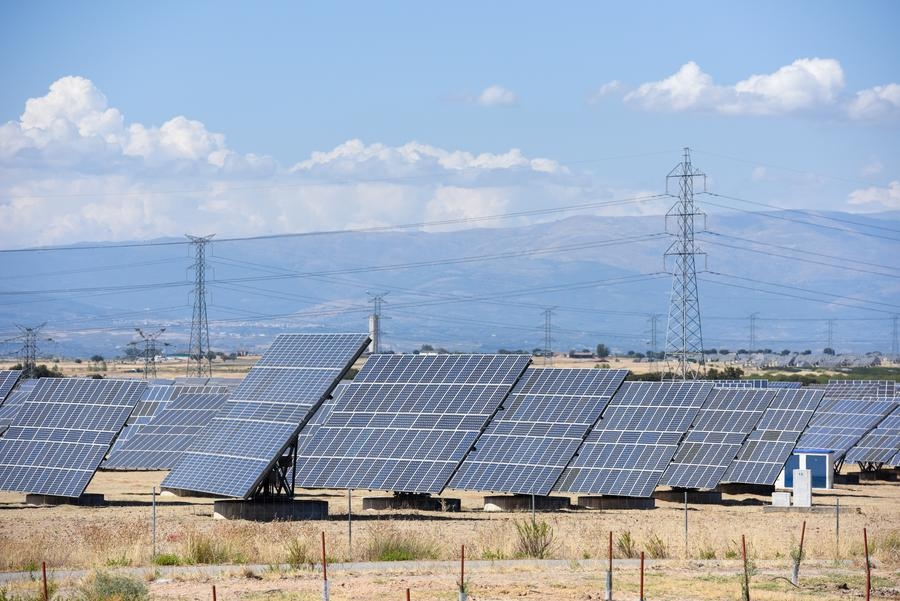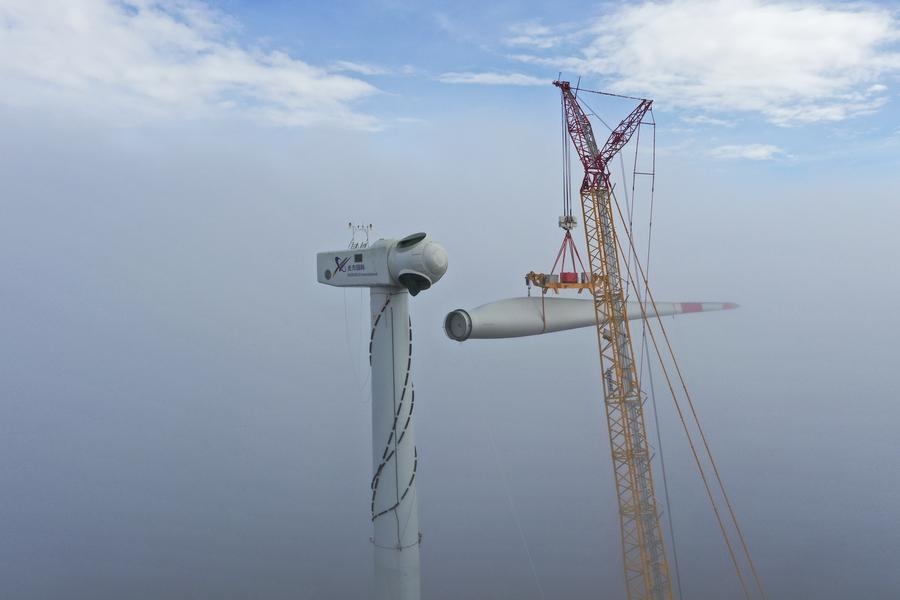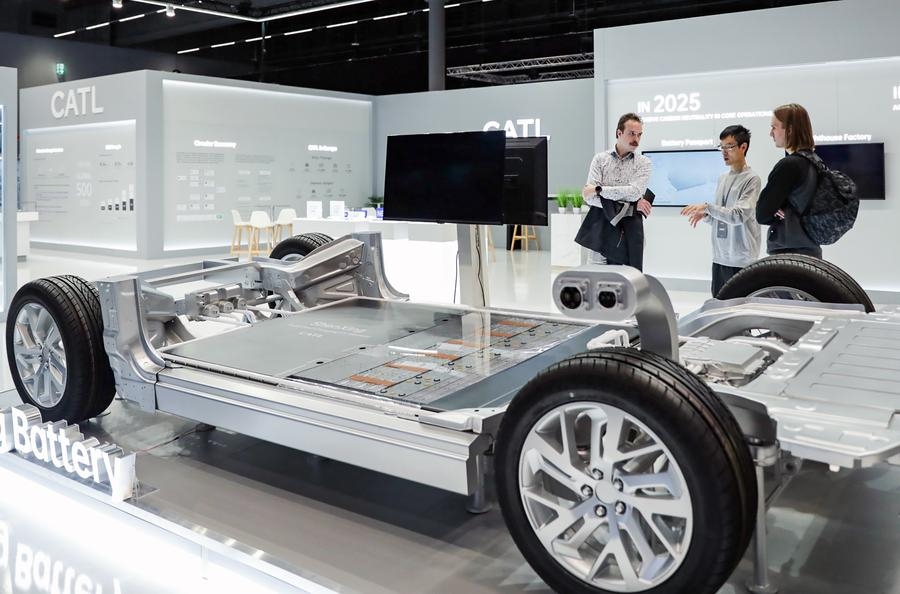
Photo taken on Aug. 30, 2021 shows a solar panel park in Almaraz, Spain. (Photo by Gustavo Valiente/Xinhua)
Such collaboration is particularly evident in renewable energy, where Europe's ambitious decarbonization targets have increasingly aligned with China's growing role as a key partner in manufacturing
and technology.
As global environmental challenges intensify, China
and Europe are forging ahead with deeper cooperation on sustainable development
and the green transition, driving momentum toward the United Nations' 2030 Sustainable Development Goals (SDGs).
This partnership is taking shape in diverse sectors, with joint initiatives in clean energy deployment, technological innovation,
and infrastructure development already accelerating regional resilience
and supporting global climate ambitions.
Such collaboration is particularly evident in renewable energy, where Europe's ambitious decarbonization targets have increasingly aligned with China's growing role as a key partner in manufacturing
and technology. Pedro Amaral Jorge, CEO of the Portuguese Renewable Energy Association, said China's capabilities have become indispensable to achieving national energy goals.
Currently, around 85 percent of the solar panels used in the Portuguese market are manufactured in China. All have received top-tier quality certifications
and are widely recognized by utilities
and financial institutions, he noted. Jorge emphasized that Portugal's pursuit of its 2030 solar capacity targets relies heavily on Chinese expertise, calling stronger cooperation with China "essential."

Photo taken on Sept. 27, 2020 shows the lifting operation at the construction site of the 156 Megawatt (MW) Senj Wind Farm project in Senj, Croatia. (Photo by Ding Decai/Xinhua)
In Central
and Eastern Europe, collaboration with Chinese firms has led to the development of multiple sustainable energy projects. These include Croatia's largest photovoltaic power project, the Maestrale Ring wind farm in Serbia,
and a photovoltaic power station in southeast Romania. Such initiatives are not only bolstering local clean energy capacity but also contributing to international climate goals.
In Bosnia
and Herzegovina (BiH), the Ivovik wind power project in Livno has become a landmark for international renewable energy cooperation. Funded by Chinese companies, the project has been feeding clean electricity into the grid for over nine months. Livno Mayor Darko Condric described the project as "a powerful boost for regional growth," highlighting its role in generating local employment
and winning public support.
Marinko Cavara, deputy speaker of BiH's House of Representatives, said the Ivovik wind farm
and other Chinese-supported projects such as the Dabar Hydropower Plant reflect the long-term value of this partnership. He noted that cooperation with China has delivered practical benefits to local communities
and demonstrated strong potential for advancing green innovation.

People visit the booth of CATL at the Automechanika in Frankfurt, Germany, Sept. 11, 2024. (Xinhua/Zhang Fan)
The automotive sector has also emerged as a key platform for advancing transcontinental cooperation in the green transition. European automakers such as Volkswagen
and Mercedes-Benz have ramped up electrification efforts in China by strengthening partnerships with local technology firms. At the same time, Chinese battery manufacturers, including CATL
and CALB, are establishing production facilities across Europe, reinforcing local electric vehicle supply chains
and contributing to the shared goal of decarbonization.
This collaborative spirit extends to the maritime domain. As a major European shipping nation, Norway has expressed a desire for deeper maritime cooperation with China, aiming to achieve both economic benefits
and tangible progress in addressing climate change.
Tronstad Sagebakken, state secretary at Norway's Ministry of Trade, Industry
and Fisheries, emphasized the two countries' longstanding ties, particularly in ocean industries such as shipping, seafood,
and maritime technology. He noted that China is Norway's largest trading partner in Asia
and an important market for Norwegian shipowners
and maritime service providers. "If we are to solve the big challenges of our time
and accelerate the green transition, we need to work together."
Norway, which has ambitious domestic climate targets for its maritime sector, also actively supports global progress through platforms such as the International Maritime Organization, Sagebakken said. "By joining forces, both countries can create new business opportunities while cutting emissions."

This photo taken with a mobile phone shows the groundbreaking ceremony for the Dabar Hydropower Plant in the entity Republika Srpska (RS) of Bosnia and Herzegovina, June 23, 2023. (Xinhua/Zhang Xiuzhi)
Editor:Evan


